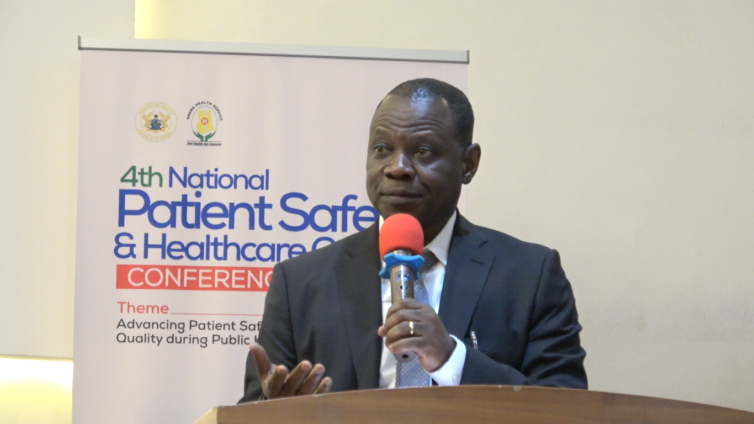The Ghana Health Service (GHS) has declared an end to the Lassa Fever (LF) outbreak recorded in the country in February this year.
This follows the elapse of the mandatory 42-day period since the recovery of the last detected case as stipulated by the World Health Organisation (WHO) to declare the outbreak over.
A statement signed and issued by the Director-General, Dr Patrick Kuma-Aboagye, in Accra said, “The maximum follow-up period of 42 days has elapsed since the last confirmed case of Lassa Fever was discharged on March 10, 2023, indicating the end of the outbreak.”
“Subsequently, the GHS declares the end of the Lassa Fever outbreak in line with the WHO-recommended mandatory 42 days post-Lassa Fever surveillance countdown period from when the last case was discharged,” it said.
Dr Kuma-Aboagye cautioned the public, however, to reduce contact with wildlife especially rats to avert possible disease spread.
“The public is entreated to store leftover foods appropriately in order to prevent rats from coming into contact with them, improve cleanliness in homes especially kitchens, avoid direct and indirect or close contacts with persons suspected of having Lassa Fever or any other infectious disease and undertake regular hand washing after to avoid infections,” he advised.
Turning attention to healthcare workers, the D-G implored them to strictly apply the universal infection prevention and control measures at all times, including wearing of gloves and other appropriate personal protective equipment while taking care of patients.
“We wish to reassure the public that the government and development partners through the Ministry of Health are supporting the GHS and other agencies in building a resilient health system to withstand all future outbreaks.
We however, appeal to the public to report to the nearest health facility on time for proper medical attention whenever they feel unwell,” he advised.
Data from the GHS indicates that 27 cases of LF were confirmed in Ghana between February and March this year including one death.
Initial cases of the disease were confirmed by the Noguchi Memorial Institute for Medical Research with about 95 contacts traced to the identified cases.
Lassa fever is a type of viral haemorrhagic fever (VHF) that occurs in parts of West Africa. The incubation period is 6-21 days. The onset of LF illness is often gradual, with non-specific signs and symptoms and commonly presents with fever, general weakness and malaise at the early onset.
In severe cases, infected persons may bleed from the mouth, nose or in the stomach. Death usually occurs within 14 days of infection in fatal cases.
Ghana recorded its first case of LF in 2011.
Latest Stories
-
African diplomatic missions strengthen capacities to protect migrant workers in Arab States
28 minutes -
Esther A.N. Cobbah: A Beacon of Purposeful Communication
37 minutes -
No power crisis looming – Energy Minister assures
39 minutes -
DJ Mensah Foundation donates desks, learning materials to Akokoase AEDA School
47 minutes -
AI4SD introduces indigenous AI-integrated weather forecasting system for farmers in Kwabeng
1 hour -
Climate change: AGN calls for a ‘Just Transition’ that addresses Africa’s energy poverty
1 hour -
DWM celebrates 43 years of empowering Ghanaian women
1 hour -
Notorious armed robber jailed for life, gets 120 years for killing pharmacist in Kumasi
2 hours -
Yendi Solar Project: Bui Power Authority starts disbursement of compensation to landowners
2 hours -
Mahama commends Ato Forson and BoG Governor for spearheading economic turnaround
2 hours -
NPP Flagbearership: What has each prospective candidate done for Ghana in public office?
2 hours -
Samira Bawumia Literature Prize announces call for entries for 2025 edition
3 hours -
Bril and Kwabena Wonda drop uplifting new single ‘He Lives’
3 hours -
Why the NDC majority shields Mahama from impeachment—even amid constitutional Concerns
3 hours -
At dawn they hunt: The sacred ritual of Aboakyer’s deer chase
3 hours

